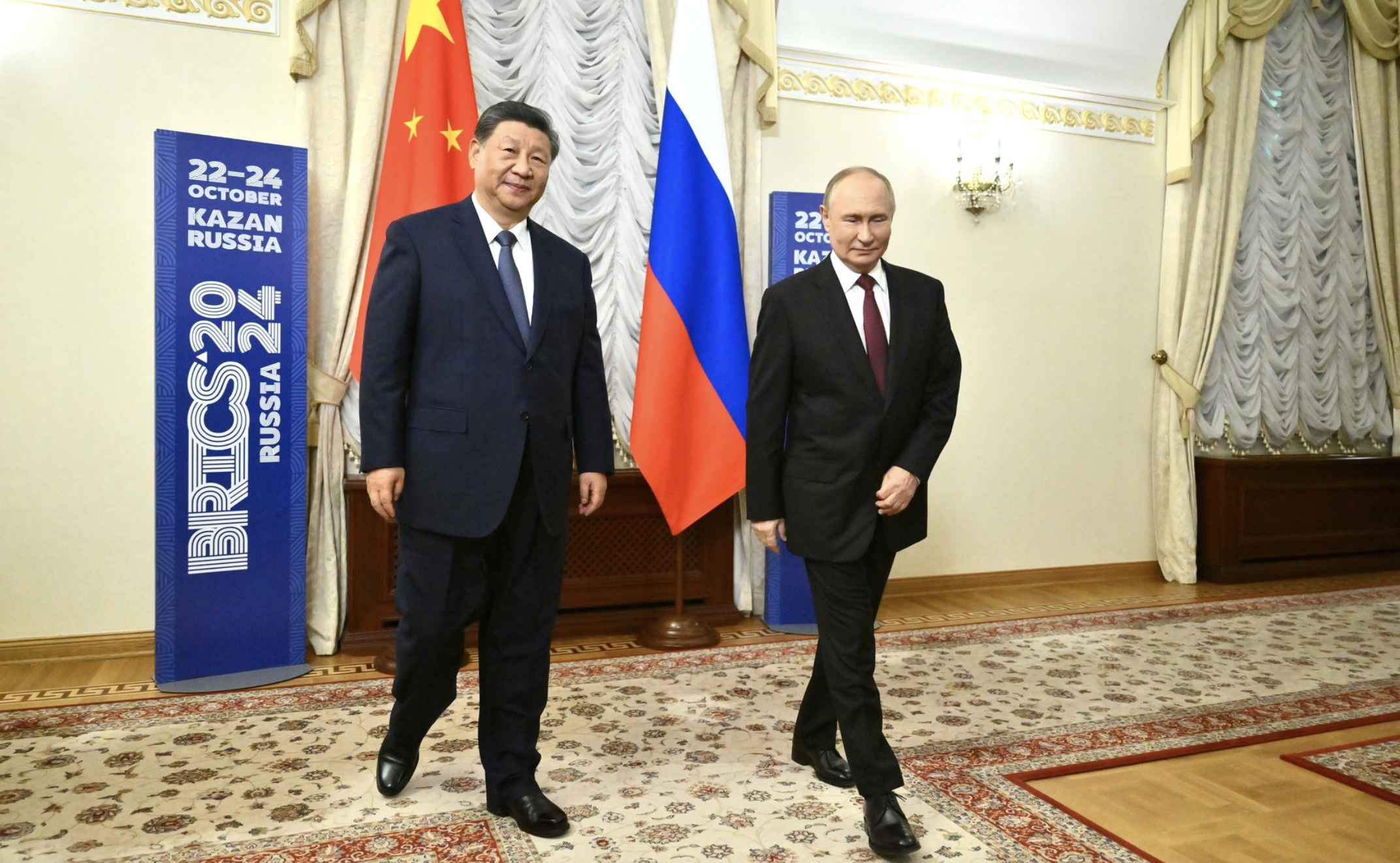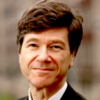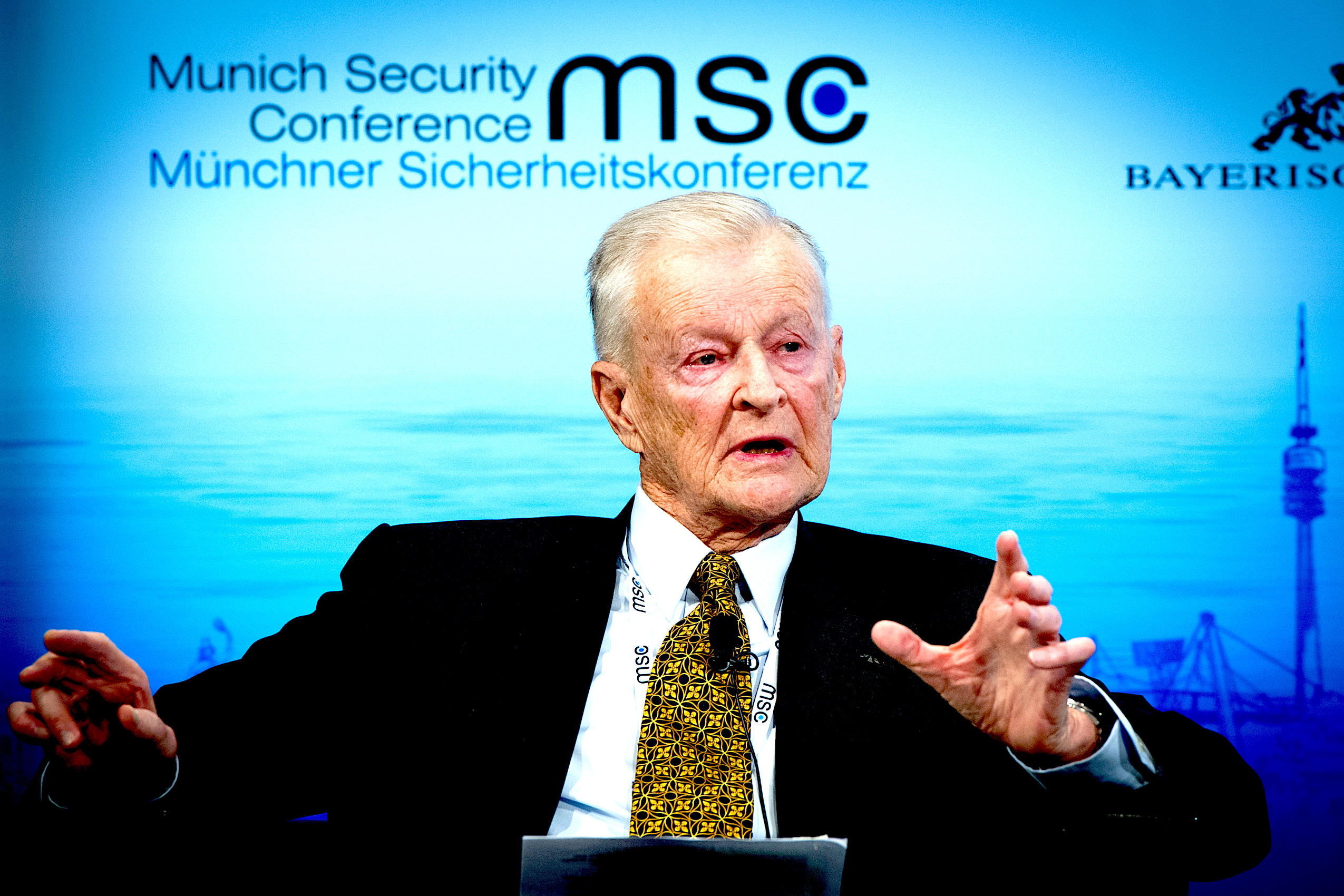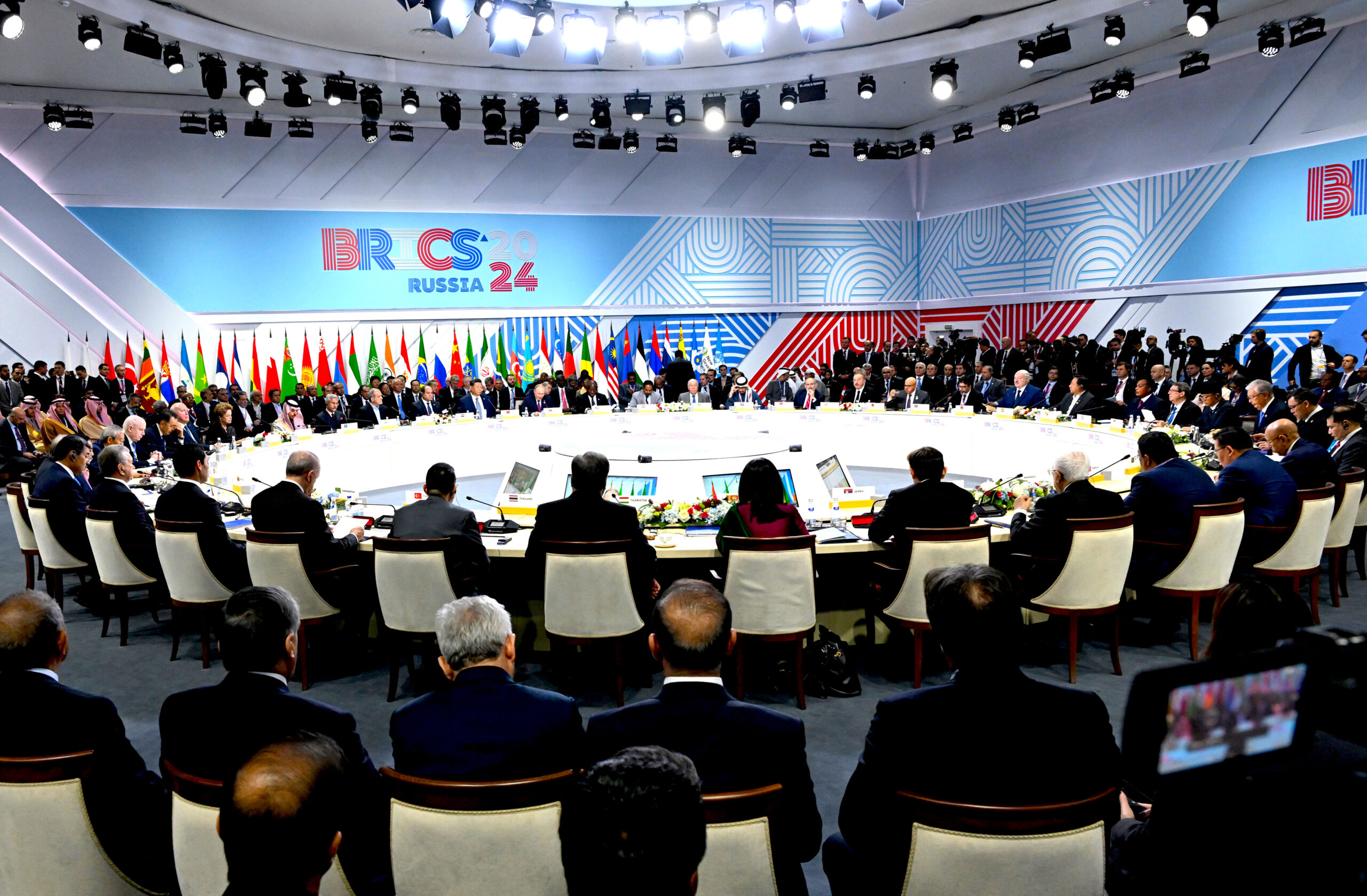The majority of the world does not want or accept U.S. hegemony and is prepared to face it down rather than submit to its dictates, writes Jeffrey D. Sachs.

China’s President Xi Jinping and Russian President Vladimir Putin at BRICS summit on Oct. 25 in Kazan, Russia. (Kristina Kormilitsyna, brics-russia2024.ru Host Photo Agency, Kremlin)
By Jeffrey D. Sachs
Common Dreams
 The recent BRICS Summit in Kazan, Russia, should mark the end of the Neocon delusions encapsulated in the subtitle of Zbigniew Brzezinski’s 1997 book, The Global Chessboard: American Primacy and its Geostrategic Imperatives.
The recent BRICS Summit in Kazan, Russia, should mark the end of the Neocon delusions encapsulated in the subtitle of Zbigniew Brzezinski’s 1997 book, The Global Chessboard: American Primacy and its Geostrategic Imperatives.
Since the 1990s, the goal of American foreign policy has been “primacy,” aka global hegemony. The U.S. methods of choice have been wars, regime-change operations and unilateral coercive measures (economic sanctions).
Kazan brought together 35 countries with more than half the world population that reject the U.S. bullying and that are not cowed by U.S. claims of hegemony.
In the Kazan Declaration, the countries underscored “the emergence of new centres of power, policy decision-making and economic growth, which can pave the way for a more equitable, just, democratic and balanced multipolar world order.”
They emphasized “the need to adapt the current architecture of international relations to better reflect the contemporary realities,” while declaring their “commitment to multilateralism and upholding the international law, including the Purposes and Principles enshrined in the Charter of the United Nations (U.N.) as its indispensable cornerstone.”
They took particular aim at the sanctions imposed by the U.S. and its allies, holding that “Such measures undermine the UN Charter, the multilateral trading system, the sustainable development and environmental agreements.”
History of Hegemony
The neocon quest for global hegemony has deep historical roots in America’s belief in its exceptionalism.
In 1630, Puritan leader John Winthrop invoked the Gospels in describing the Massachusetts Bay Colony as a “City on the Hill,” declaring grandiosely that “The eyes of all people are upon us.”
In the 19th century, America was guided by Manifest Destiny, to conquer North America by displacing or exterminating the native peoples. In the course of World War II, Americans embraced the idea of the “American Century,” that after the war the U.S. would lead the world.
The U.S. delusions of grandeur were supercharged with the collapse of the Soviet Union at the end of 1991. With America’s Cold War nemesis gone, the ascendant American neoconservatives conceived of a new world order in which the U.S. was the sole superpower and the policeman of the world. Their foreign policy instruments of choice were wars and regime-change operations to overthrow governments they disliked.
Following 9/11, the neocons planned to overthrow seven governments in the Islamic world, starting with Iraq, and then moving on to Syria, Lebanon, Libya, Somalia, Sudan, and Iran. According to Wesley Clark, former supreme commander of NATO, the neocons expected the U.S. to prevail in these wars in five years. Yet now, more than 20 years on, the neocon-instigated wars continue while the U.S. has achieved absolutely none of its hegemonic objectives.
General Wesley Clark : We Will Invade Seven Countries in Five Years (2007) pic.twitter.com/8dejWGHin2
— Mark Joseph (@Markbevilaqua) October 31, 2024
The neocons reasoned back in the 1990s that no country or group of countries would ever dare to stand up to U.S. power. Zbigniew Brzezinski, for example, President Jimmy Carter’s national security adviser, argued in The Grand Chessboard that Russia would have no choice but to submit to the U.S.-led expansion of NATO and the geopolitical dictates of the U.S. and Europe, since there was no realistic prospect of Russia successfully forming an anti-hegemonic coalition with China, Iran and others.
As Brzezinski put it:
“Russia’s only real geostrategic option — the option that could give Russia a realistic international role and also maximize the opportunity of transforming and socially modernizing itself — is Europe. And not just any Europe, but the transatlantic Europe of the enlarging EU and NATO.” (emphasis added, Kindle edition, p. 118)

Brzezinski at the Munich Security Conference, 2014. (Tobias Kleinschmidt, Wikimedia Commons, CC BY 3.0 de)
Brzezinski was decisively wrong, and his misjudgment helped to lead to the disaster of the war in Ukraine. Russia did not simply succumb to the U.S. plan to expand NATO to Ukraine, as Brzezinski assumed it would. Russia said a firm no, and was prepared to wage war to stop the U.S. plans. As a result of the neocon miscalculations vis-à-vis Ukraine, Russia is now prevailing on the battlefield, and hundreds of thousands of Ukrainians are dead.
Nor — and this is the plain message from Kazan — did U.S. sanctions and diplomatic pressures isolate Russian in the least. In response to pervasive U.S. bullying, an anti-hegemonic counterweight has emerged. Simply put, the majority of the world does not want or accept U.S. hegemony, and is prepared to face it down rather than submit to its dictates. Nor does the U.S. anymore possess the economic, financial, or military power to enforce its will, if it ever did.
The countries that assembled in Kazan represent a clear majority of the world’s population. The nine BRICS members (Brazil, Russia, India, China, and South Africa as the original five, plus Egypt, Ethiopia, Iran, and the United Arab Emirates), in addition to the delegations of 27 aspiring members, constitute 57 percent of the world’s population and 47 percent of the world’s output (measured at purchasing-power adjusted prices).

BRICS plenary summit in Kazan last month. (President.az, Wikimedia Commons, CC BY 4.0)
The U.S., by contrast, constitutes 4.1 percent of the world population and 15 percent of world output. Add in the U.S. allies, and the population share of the U.S.-led alliance is around 15 percent of the global population.
The BRICS will gain in relative economic weight, technological prowess, and military strength in the years ahead. The combined GDP of the BRICS countries is growing at around 5 percent per annum, while the combined GDP of the U.S. and its allies in Europe and the Asia-Pacific is growing at around 2 percent per annum.
Even with their growing clout, however, the BRICS can’t replace the U.S. as a new global hegemon. They simply lack the military, financial, and technological power to defeat the U.S. or even to threaten its vital interests. The BRICS are in practice calling for a new and realistic multipolarity, not an alternative hegemony in which they are in charge.
American strategists should heed the ultimately positive message coming from Kazan. Not only has the neocon quest for global hegemony failed, it has been a costly disaster for the U.S. and the world, leading to bloody and pointless wars, economic shocks, mass displacements of populations, and rising threats of nuclear confrontation. A more inclusive and equitable multipolar world order offers a promising path out of the current morass, one that can benefit the U.S. and its allies as well as the nations that met in Kazan.
The rise of the BRICS is therefore not merely a rebuke to the U.S., but also a potential opening for a far more peaceful and secure world order. The multipolar world order envisioned by the BRICS can be a boon for all countries, including the United States. Time has run out on the neocon delusions, and the U.S. wars of choice. The moment has arrived for a renewed diplomacy to end the conflicts raging around the world.
Jeffrey D. Sachs is a university professor and director of the Center for Sustainable Development at Columbia University, where he directed The Earth Institute from 2002 until 2016. He is also president of the U.N. Sustainable Development Solutions Network and a commissioner of the U.N. Broadband Commission for Development.
This article is from Common Dreams.
Views expressed in this article and may or may not reflect those of Consortium News.

I’m not one to challenge the truth when I see it. This is extremely good material.
Jeff Sachs is in my opinion one hundred percent on track. I do have an opinion on when this all started though.
I have one issue with the history here, Arthur Schlesinger wrote several memos to JFK concerning the autonomy of the CIA and his views on the matter, one being CIA should be reorganized, including a statement that claimed the CIA’s autonomy had in effect usurped the authority of the President.
These memos are available through various sources. All support, in. my opinion what I’m about to write.
The point of contention in my mind addresses the beginning of the NEOCON mindset and how it manifest itself.
Sachs writes, ” Since the 1990’s, the goal of American foreign policy has been “primacy”, aka. global hegemony. The methods have been wars, regime-change operations and unilateral coercive measures (economic sanctions).”
While I do see this as a true statement my issue is the omission of history which led to this.
The history speaks for itself by the 1980’s, only 17 years after the events of 11-22-63 those commonly known as NEOCONs and their ilk had gained power in the U.S., the result, in my opinion, was foreign policy dictated by CIA.
Sachs goes on to explain “Since the 1990’s, the goal of foreign policy has been “primacy”, aka global hegemony.”
Appearances can be very misleading, again my opinion. The fix had been in for quite sometime, since 1963 as I see it. Revelations of history since 1963 point to direct actions by the CIA’s application of control of U.S. foreign policy. 1963 – 1990 is 27 years.
The History of Hegemony
I can be accused of splitting hair here, so be it, I have a point to make.
The failure of the American people seems to me, in my opinion, to be self evident today. Our more recent forebearers by failing to demand answers to the questions created by events on 11-22-63, failed their country and I do not care to be remembered as being one of those individuals.
Mr. Sachs quite aptly describes the history of hegemony.
He points to the fall of the Soviet Union in late 1991 an event the NEOCON’s jumped on and claimed success for, in my opinion nothing can be further from the truth. I have here referred to the failure of our forebearer’s and their failure, this is not fair if I do not point out they were also ignored and will be by history because they are the individuals who paid the taxes and supported the U.S. government in building a nation responsible in part for the demise of the Soviet Union.
Then points out how wrong “Ziggy ” has been. A great take on the truth, indeed!
Mr.Sachs continues as he masterfully reveals with great clarity exactly were we find ourselves and why.
I cannot express in words here how welcome his message is to me. Especially in light of most recent developments. I fear our country and it’s inhabitants are about to be strenuously tested.
I have one advantage over Mr. Sachs at my age, being a layman <(2.) having no professional title or position to protect I benefit from some level of anonymity and likely a high level of disdain from others induced by my tendency exhibit brashness. Something that seems to have been extremely useful to the incoming POTUS!
It is unfortunate that J.M cannot see China (and BRICS) as an opportunity rather than a threat.
The Western societies/institutions are heavily marred by overt, even more “covert” xenophobic tendencies, a clear example is Western approach to China. Even Realist theories often mirrors these prejudiced views, as those “realities” are perceived solely from a Western point of view, accurate as long as Western culture and ideology dominate the world.
Ironically, the West’s recent prosperity has been largely driven by China’s economic rise; In fact, China’s economic growth has helped prolong the life of many of Western “inefficient” economies; viewing now Chinese’s economic success as a threat starkly illustrates such xenophobic mindset.
Comparing China to the United States ignores the vast historical and cultural differences that set them apart. Scholar John Mearsheimer tends to frame China as an adversary (if not an enemy), fearing it could eclipse U.S. dominance on the world stage, yet there’s no solid evidence backing this fear. The BRICS is not based on one hegemonic nation, China’s military developments are largely defensive, aimed at countering growing U.S. threats and overt aggressiveness rather than signaling imperial ambitions; after all, China doesn’t establish hundreds military bases worldwide or meddle in conflicts like the US does in the Middle East. Mearsheimer often debates who views Putin as an imperialist arguing that Putin had never shown or expressed such desire or intention, but I wonder when or where J.M. had heard Xi say or manifest the desire for world hegemony. I have often heard the opposite from China…
By treating China as a threat we are making it as such through a self-fulfilling prophecy, and perhaps is done in purpose to justify our xenophobia and our aggressive behavior toward China.
Ultimately, if the U.S. tries to stifle China’s rise, it will have serious repercussions and the US could become increasingly isolated; the coercive/dictatorial nature of the US, is increasingly distancing non-western nations, bringing them closer to China, Russia and the South. The power shift we see today is necessary to attain sustainable development
The Kazan Declaration is validation of Buckminster Fuller’s well-known dictum: “You never change things by fighting the existing reality. To change something, build a new model that makes the existing model obsolete.”
Well said. Fuller’s concept is valid and constructive. Rove’s statement telegraphs his loyalty to his reality and not the reality we currently live in. See Sun-Tzu. His observations have withstood the test of time for a reason.
Carl Rove’s opinions clearly do not equal the observations of Sun-Tzu even remotely.
Neither Mr. Trump nor Ms. Harris (had she won), neither Republicans nor Democrats, will see, much less admit, what is obvious to many of us.. The world will be a dangerous place as long as American politicians and their supporters maintain the delusion that the USA is the nevessary hegemon on the planet. I am not hopeful as America encounters a changing world order and faces its own obvious decline in influence and relative power. Military power projection won’t cut it, or even be possible when no one wants to hold our bonds. The real danger is in the arrogant and perhaps violent reaction to this new reality of U.S. decline by the blind and delusional political class and the great majority of Americans who still think we live in a truly representational and virtuous republic.
Back when the Cheney family was in power, some off the record wag made a quote to the Wash Post …. “We don’t worry about reality. We create reality.”
These ruling elites have never understood the folly of that statement, and it appears to accurately describe the flailing policies of this bunch of Cheney followers under Biden/Harris. We can see it with the ongoing genocide … ‘its not genocide because we say it is not genocide and we create reality, by gawd’
Thus, the folly of the neocons can not be ended by reality because the neocons long ago rejected reality.
Thus, the only way this ends is with a big crash, as that’s always the final destination of fools who decide not to worry about reality when they are allowed to roam free outside of their asylums.
Karl Rove said it:
“We’re an empire now, and when we act, we create our own reality. And while you’re studying that reality — judiciously, as you will — we’ll act again, creating other new realities, which you can study too, and that’s how things will sort out. We’re history’s actors . . . and you, all of you, will be left to just study what we do.”
Hubris
Exactly. Many thanks for the concise and comprehensive summary.